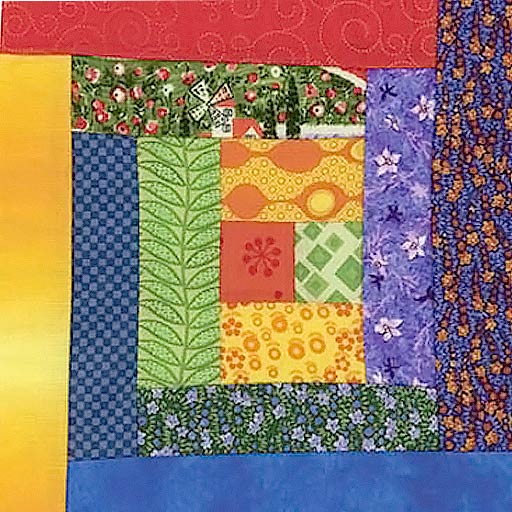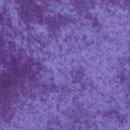Q: Is my home a place where all members of the family receive affection and understanding, and where visitors are welcome?
PYM Faith and Practice, 2002
Assistive Devices can help people maintain self care skills and participate in their favorite activities. Communities benefit from diversity when adaptations are made to include people with physical or other disabilities. What are assistive devices and how can they help?
Grandpa’s knees hurt and he is having trouble getting out of his favorite chair. Marge has painted watercolors for years, but at 73 holding the brush has gotten painful. Irene’s bridge group has noticed she is having trouble distinguishing between the cards. All of these limitations can be resolved with assistive devices and home remedies.
First, if the limitation might be remedied with a wheelchair, a shower seat, a cane, walker or other equipment, get in touch with the medical provider and ask for a referral to an Occupational Therapist (OT) for an evaluation. Medicare covers the O.T.’s visit and several items she might recommend are also covered by Medicare with a doctor’s prescription. Consulting with a professional may help save money and effort—too many have bought a shower seat only to find it’s not the best model and they have to pay out of pocket.
Sometimes the solution becomes clear from observation. I watched Grandpa struggle to get out of his chair and noticed that his hips were lower than his knees. I suggested he get a recliner with a lift that would slowly rise until he was standing. However, this was a favorite chair, so instead, two cushions were put under his seat and now, with his hips higher than his knees, standing is less of a struggle. Marge’s arthritis meant that holding a paintbrush for long was painful. However, when a sponge was wrapped around the brush handle and secured with two rubber bands, she could paint much longer and pain free.
Irene’s macular degeneration meant that she no longer had any central vision. Her daughter called the Association for the Blind for a free in-home evaluation. They recommended several small changes in her home, such as a bright dot put on the thermostat at Irene’s favorite temperature, and a similar dot on the oven dial at a common temperature for baking. Then they showed Irene a catalogue of assistive devices so she could order large playing cards. They also suggested Irene would enjoy Talking Books and explained that the books she chose would be mailed to her for free, along with the machine to play them on.
Irene’s level of vision loss meant that she qualified for other free adaptations. The phone company would give her a phone with very large numbers, and she could receive free 411 information services since she could not read the tiny print of the phone book. Some services, such as tailored radio stations and Talking Books are available to the vision impaired, not just the blind, plus those who cannot read because of some other cause. The phone company also has special equipment for the hearing impaired that is available on a one time sliding scale payment.
This article has just touched the tip of the assistive equipment and devices available. You can find catalogues on line or through medical equipment stores, and see our list of links and other resources.
Considerations for Faith Communities:
Is your Meeting a safe, loving place?
When we become aware of someone’s need, do we offer assistance?
Are the meetinghouse and the Meeting property accessible to all?
— Queries from Philadelphia Yearly Meeting Faith and Practice, 2002
- Know what resources and services are available in your area, such as your county Agency on Aging and the local chapter of the Association for the Blind, so that you can be prepared to share this information with Friends in need. Your regional organization, such as the Archdiocese or Quaker Yearly Meeting, may also provide information, and see our list of links and other resources.
- Assess your place of worship for accessibility- physical, communication, and attitude.
- Ask people using wheelchairs, walkers, and canes, or with vision impairment- can they safely access the building, including bathrooms and other areas? Do you have the proper variety of chairs, including some sturdy ones with arms? Consider consulting with a Certified Aging in Place Specialist to help determine what you may need to change.
- Is information communicated in a way that is accessible and inclusive? Ask people with hearing or vision differences what will help them stay in touch with the rest of the community.Are there adaptations or devices that can be used, such as seating arrangements, audio systems in the Meeting room, availability of books on tape for your library?
- Is there an attitude of inclusion? Is your community consciously inclusive of people with age related or other challenges in planning and facilitation of events and activities? Do you ask people what will help them participate?
- As individuals are we open to receiving help and support, and if not, how can we help one another to be so?
“In joyful dependence, we can grow to be as fully human as possible, as thoroughly in the image of God as we are intended to be.”
Howard R. Macy, 1988, PYM Faith and Practice
Download this article in pamphlet form
LINKS TO MORE INFORMATION: Click on the blue text below to be directed to outside websites that offer additional information on this topic. Articles from this site will open in the same browser window/tab. Articles from other websites will open in a new window; when you are done, simply click out of that window and you will be back on this site.
More articles on this website:
Including Everyone: Faith Community Care for People with Challenges
Living at Home Forever
Other Articles/Links:
Certified Aging in Place Specialist
Adapting the Home After a Stroke
Interfaith Disability Network
Interfaith Disability Advocacy blog
Sources/Further Reading:
National Organization on Disability, That All May Worship, 2005, Washington, DC.
Erik W. Carter, Including People with Disabilities in Faith Communities, 2007 Paul H. Brookes Publishing, Baltimore, Maryland.

